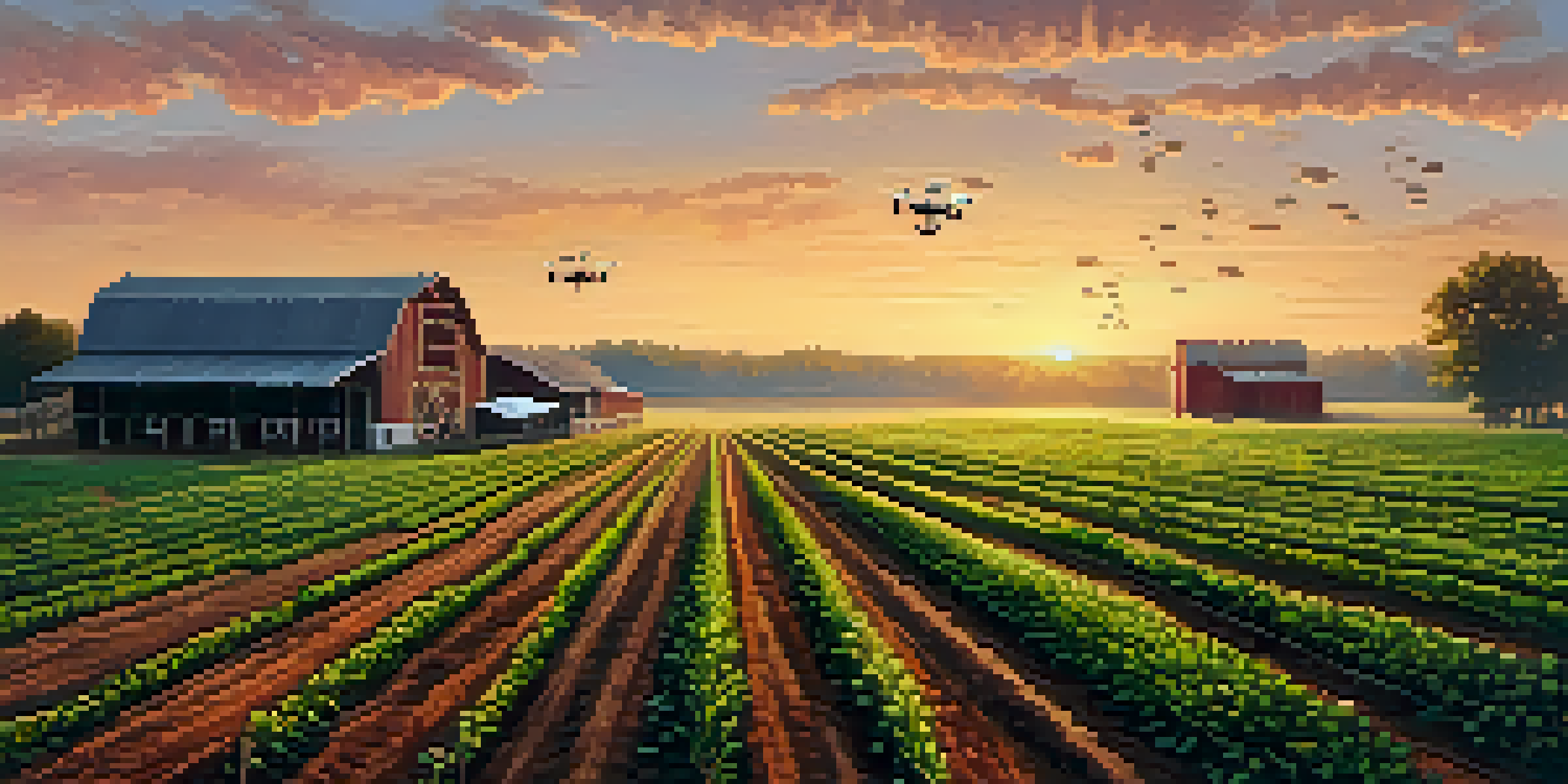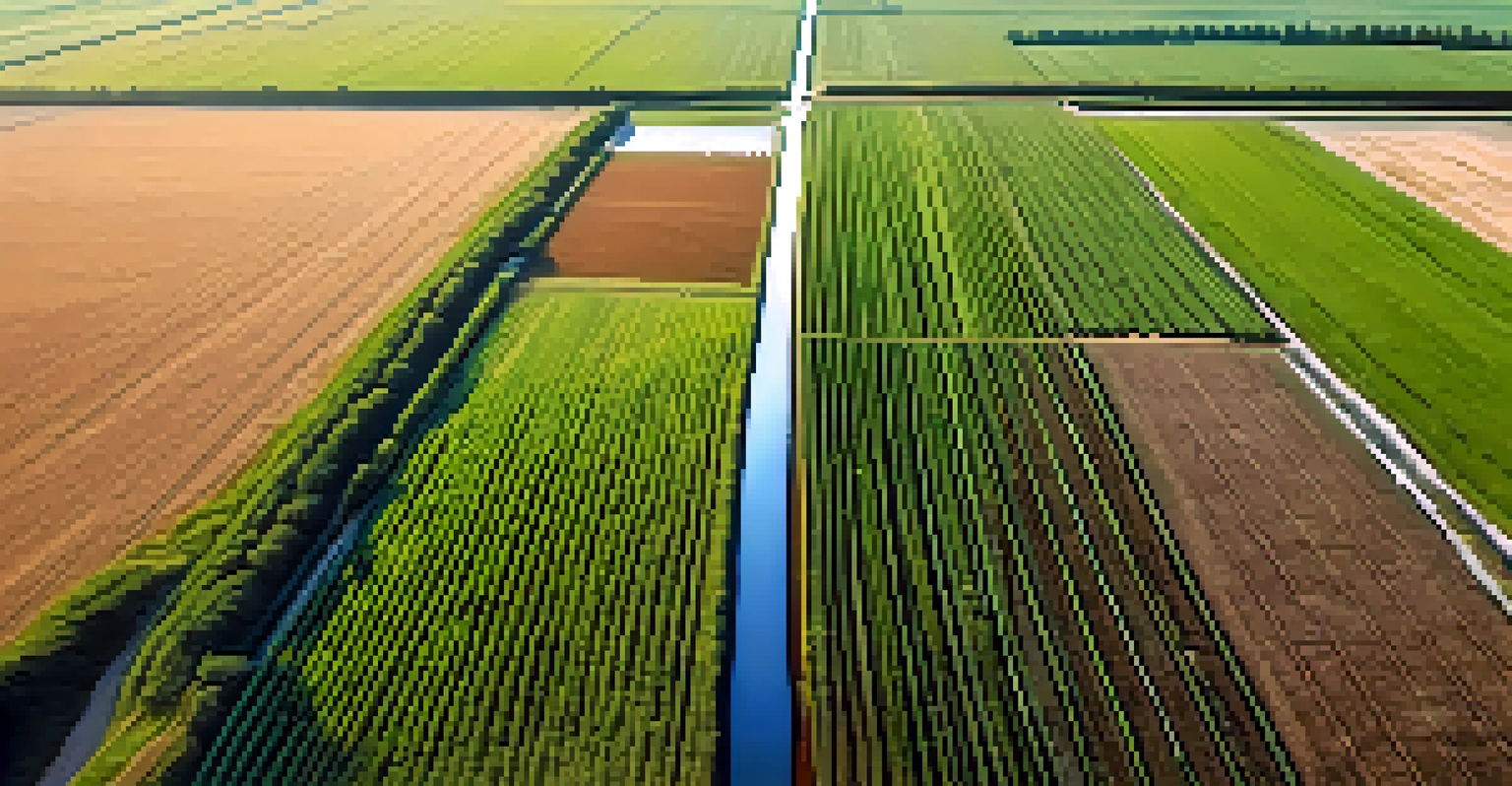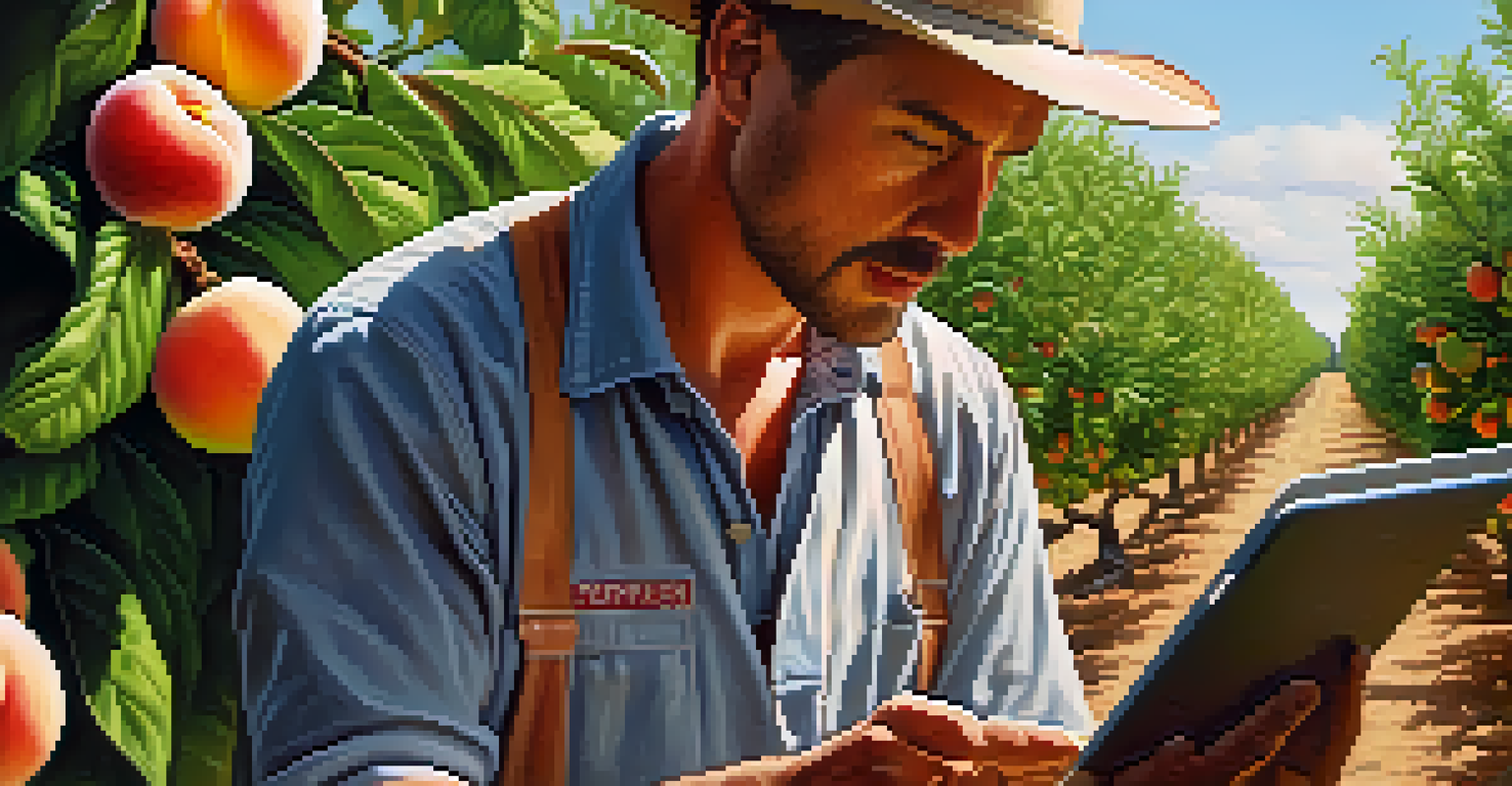The Role of Technology in Georgia's Agricultural Industry

The Evolution of Agriculture in Georgia
Agriculture has always been a cornerstone of Georgia's economy, deeply rooted in its history. From cotton to peaches, the state has thrived on its agricultural output. However, as challenges like climate change and labor shortages arise, technology has begun to play a pivotal role in reshaping the industry.
Agriculture is our wisest pursuit, because it will in the end contribute most to real wealth, good morals, and happiness.
Farmers are now embracing innovations such as precision farming, which uses data and technology to optimize crop yields. This shift not only boosts productivity but also helps in conserving resources like water and fertilizer. As a result, Georgia's agricultural landscape is evolving, allowing farmers to stay competitive in a global market.
Moreover, advancements in biotechnology have led to the development of resilient crop varieties, enabling growers to withstand pests and diseases more effectively. This transformation illustrates that technology is not just an addition but a necessity for the future of agriculture in Georgia.
Precision Agriculture: The Future of Farming
Precision agriculture is revolutionizing how farmers in Georgia manage their land. By utilizing GPS technology and data analytics, farmers can monitor field conditions in real time. This information allows them to make informed decisions about planting, irrigating, and harvesting, ultimately leading to increased efficiency.

For example, farmers can use drones to assess crop health or identify areas that need attention. This targeted approach not only saves time but also reduces waste, contributing to sustainable farming practices. As a result, precision agriculture is becoming a game-changer for many Georgia farmers, providing them with the tools to maximize their output.
Technology Reshaping Georgia Farming
Innovations like precision agriculture and biotechnology are transforming Georgia's agricultural landscape, helping farmers adapt to challenges and enhance productivity.
Additionally, with the rise of mobile apps and farm management software, farmers can now track their operations from anywhere. This accessibility empowers them to respond swiftly to changes and challenges, making technology an essential ally in modern farming.
The Role of Drones in Modern Agriculture
Drones have emerged as an exciting technological advancement in Georgia's agriculture. These unmanned aerial vehicles provide farmers with a bird's-eye view of their fields, making it easier to monitor crop health and detect issues early. This capability is particularly beneficial for large farms, where visual inspections can be labor-intensive.
The farmer has to be an optimist or he wouldn’t still be a farmer.
For instance, drones equipped with infrared cameras can identify areas suffering from water stress or pest infestations. By pinpointing these problems, farmers can take immediate action, preventing potential crop loss and ensuring a healthier yield. This kind of proactive management exemplifies how technology can enhance traditional farming methods.
Moreover, drones can be used for tasks such as planting seeds and spraying fertilizers, streamlining operations. As this technology continues to advance, it's clear that drones will play an increasingly vital role in Georgia's agricultural industry.
Smart Irrigation Systems: Conserving Water Resources
Water scarcity is a pressing issue in Georgia, making efficient irrigation systems essential for sustainable agriculture. Smart irrigation technology, which uses sensors and weather data to optimize water usage, is gaining traction among Georgia farmers. These systems ensure crops receive the right amount of water at the right time, reducing waste and promoting healthy growth.
For example, some farms have implemented soil moisture sensors that communicate with irrigation systems. When soil moisture levels drop below a certain threshold, the system automatically activates, delivering water precisely where and when it's needed. This not only conserves water but also reduces energy costs associated with irrigation.
Drones Enhance Crop Management
Drones provide farmers with crucial insights into crop health and enable proactive management, making them essential tools for modern agriculture.
As climate change continues to impact weather patterns, adopting smart irrigation will become even more critical. By leveraging technology to manage water resources effectively, Georgia's agricultural sector can enhance resilience and sustainability.
Blockchain Technology: Ensuring Food Safety
Blockchain technology is making waves in various industries, and agriculture is no exception. In Georgia, farmers are beginning to adopt blockchain to enhance food safety and traceability. By creating a secure and transparent record of the supply chain, consumers can trust that their food originates from safe and responsible sources.
This technology allows every step of the agricultural process—from farm to table—to be documented and verified. For instance, if a food safety issue arises, blockchain enables quick identification of affected products, reducing the risk to consumers and enhancing public health. This level of accountability is becoming increasingly important in today's market.
Furthermore, blockchain can streamline transactions between farmers, distributors, and retailers, reducing delays and increasing efficiency. As Georgia's agricultural industry embraces these innovations, the potential for improved food safety and quality is immense.
The Impact of Big Data on Farming Decisions
Big data is transforming decision-making in Georgia's agricultural sector. With the ability to collect and analyze vast amounts of information, farmers can make more informed choices that enhance productivity and profitability. This data-driven approach allows for better forecasting, resource allocation, and risk management.
For example, by analyzing historical weather patterns and crop performance data, farmers can predict the best planting and harvesting times. This not only maximizes yields but also minimizes losses due to adverse conditions. As a result, farmers who harness big data can stay ahead in a competitive marketplace.
Smart Irrigation Conserves Water
Smart irrigation systems optimize water usage, ensuring sustainable farming practices while addressing the pressing issue of water scarcity in Georgia.
Additionally, big data can help in understanding consumer preferences, enabling farmers to tailor their products accordingly. This responsiveness to market demands ensures that Georgia's agricultural industry remains robust and adaptable in the face of changing consumer trends.
The Future of Technology in Georgia Agriculture
As we look to the future, technology's role in Georgia's agricultural industry is set to expand exponentially. Innovations will continue to emerge, offering new solutions to long-standing challenges. From artificial intelligence to robotics, Georgia farmers will have access to an ever-growing arsenal of tools to enhance their operations.
Moreover, collaboration between tech companies and farmers will be crucial in driving these advancements. By working together, they can develop tailored solutions that meet the specific needs of Georgia's diverse agricultural landscape. This partnership will not only benefit farmers but also contribute to the overall sustainability of the industry.

In conclusion, the integration of technology in agriculture is not just a trend—it's a vital evolution that will shape the future of farming in Georgia. Embracing these changes will ensure that the state remains a leader in agricultural innovation for years to come.